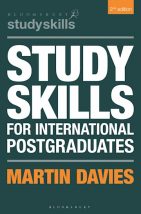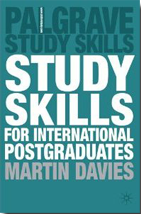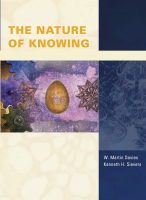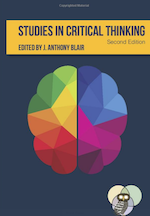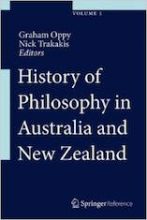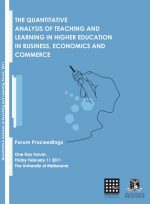Books | Personal Historiographical Books | Chapters in Books | Refereed Papers | Guest Editor of Journal | Published Reports | Working Papers | Edited Conference Proceedings | Refereed Conference Proceedings | Commissioned Reports/Papers | Editor Reviewed Papers | Editor Refereed Reports | Print Media Publications | Book Reviews | Educational Literature for Staff Use | Educational Literature for Student Use | Unpublished Writing
BOOKS
Palgrave Handbook of Critical Thinking in Higher Education
ISBN: 978 1 1373 7803 3, Symposia review in Inquiry: Critical Thinking across the Disciplines. April, 2015, Amazon ★★★★★
“A sweeping, landmark collection of perspectives on theory and practice from key thinkers and practitioners. This is a must read book for anyone who wants to know what critical thinking is, or might be, in higher education”. Professor Richard James, Pro Vice-Chancellor and Director, Melbourne Centre for the Study of Higher Education, The University of Melbourne, Australia
“The Palgrave Handbook of Critical Thinking in Higher Education edited by Martin Davies and Ronald Barnett is a comprehensive and systematic treatment of critical thinking with philosophical approaches balanced by chapters that address its teaching and incorporation in the curriculum, and the relation of critical thinking to culture, to the cognitive sciences, to the professions and to society. In short, it is an indispensable guide and state-of-the-art compendium of critical thinking in the academy.” Professor Michael A. Peters, Professor of Education, University of Waikato, New Zealand, and University of Illinois at Urbana-Champagne, USA.
“‘Critical thinking’ is one of the key aims of higher education. But what is it? And, does it mean the same thing in all fields, disciplines and cultures? While insisting on the importance of critical thinking in higher education, this book problematises and debates what it means, and how it may be developed and implemented in curriculum. It fills a key gap in the literature, and in curricular and policy debates.” – Professor Leesa Wheelahan, William G. Davis Chair in Community College Leadership, Ontario Institute of Studies for Education, University of Toronto, Canada
‘I cannot recommend this book highly enough. Succinct, systematic, accessible and extremely thorough, this carefully edited collection courtesy of Profs. Barnett and Davies, is a must-have for anyone who wishes to understand more about the nature and role of criticality in, not only higher education, but all walks of life. Educators and policy-makers, moreover, anyone with an interest in cogent thinking and argumentation, especially with regard to the type of reflexive society criticality endeavours to forge and develop will find this a thoroughly rewarding read.’ Dr Gerard Dunne Jnr, Trinity College, Dublin, Amazon.com ★★★★★
‘A substantial collection of essays exploring the connection between critical thinking and higher education’. Dr David Wright Inquiry: Critical Thinking across the Curriculum, 30(2), 2015, pp. 54-62.
‘This volume provides an informed, current and extensive basis to inspire further research and debate’. Dr Judie Cross Journal of Organizational Knowledge Communication, School of Education, Faculty of Social Sciences, University of Wollongong.
‘The Handbook’s Editors [are] masters, not of spin, but of superbly written understatement, and fluent argument’. Dr Dennis Bryant Australian Universities’ Review Vol. 58 (1), 97-98.
‘What is critical thinking, really? The book has loads of ideas. Sometimes I would open the book and read the table of contents, wistfully dreaming of a time I could read the whole thing from cover to cover. … I’m impressed by you Palgrave Handbook of Critical thinking in Higher Education’.The Thesis Whisperer.
‘Davies and Barnett provide a useful overview in the introduction to their anthology “The Palgrave Handbook of Critical Thinking.” Some theories of critical thinking emphasize skepticism in the face of political and intellectual authority. Some theories emphasize the ability to distinguish appeals to emotion from appeals to evidence. Some theories emphasize the ability to parse arguments and detect fallacies. Some other theories emphasize metacognition and the ability to articulate one’s own cognitive processes. Each discipline probably contributes in varying degrees to each of these skills’. Charles Rathkopf, Daily Nous: News for and about the Philosophy Profession.
“In my estimation the book belongs in the library of every university and college in the country just for the sweep and scope of what it covers”. Professor Frank Fair, Editor of Inquiry: Critical Thinking Across the Disciplines. Sam Houston State University, Texas.
“There is much value to be found in each of the five essays reviewed here …They evidence a need for further research into the area of social perspectives on critical thinking, while offering useful initial insights into this area”. Maria Sanders, Plymouth State University in Inquiry: Critical Thinking Across the Disciplines.
“Critical thinking” has become a buzzword … It is found in virtually every college and university mission statement. Yet simultaneously, its vagueness has been deplored and its intellectual respectability correspondingly denigrated. … This situation may be changing. An encouraging sign was the appearance in 2015 of the big Palgrave Handbook of Critical Thinking in Higher Education. It’s a 650-page collection of 36 articles representing a wide variety of issues related to the conception , the value and the pedagogy of critical thinking. Emertius Professor J. Anthony Blair, Studies in Critical Thinking. Windsor Studies in Argumentation (2019).
Summary and reviews
Take a look inside this book
Davies, M., (2022). Study Skills for Postgraduate Students. (2nd Edition.) Bloomsbury: UK. ISBN: 978-1-3520-1301-6. 5 star ranking on Amazon ★★★★★
‘Davies’ updated and revised edition of Study Skills for International Postgraduates is an invaluable step-by-step guide for navigating the graduate education process. The activities and checklists in each chapter are extremely useful and effective exercises for acquiring the skills necessary for successful completion of postgraduate work and beyond’. Professor Kristen P. Williams, Clark University.
‘Study Skills for International Postgraduates is a great asset for students starting or continuing higher degree study. It is packed full of clear and lively step-by-step guides on developing academic style and language, tackling different assignment formats, referencing and research skills. The chapters on getting started, critical thinking, referencing, digital skills, class participation and group presentations mirror the ways lecturer expectations and assessments are changing in postgraduate study.’ Caroline Malthus, Unitec Institute of Technology, NZ.
“Study Skills for International Postgraduates is an excellent introduction to the culture and demands of Anglo-American post-graduate education. The sections on how to construct papers are especially useful, even for those already familiar with Anglo-American practices. This is a valuable “how-to” manual for those undertaking study abroad.” Professor Herman Schwartz, University of Virginia.
“Extensive in its coverage, Study Skills for International Postgraduates is written in a friendly, accessible style and is sure to be a great, practical resource for international students.“ Professor Hayo Reinders, Middlesex University, UK
“The most concrete and practical guide on the market on how to achieve a postgraduate degree, with a maximum of how-to skills and competencies.“ Lotte Rienecker, University of Copenhagen, Denmark
“Davies speaks in a sort of recipe, “do as I say” language, with clear steps, graphs and a brief rationale for each part. This book would make an excellent pre-departure gift to international postgrad students and it could also be helpful throughout their degree as a reference book. The book is full of clear suggestions, questions and practical ideas to put in practice to improve your time management, reading, writing and speaking skills.” Dr Sandra D Verlarde. ANU Crawford Business School. Review on The Thesis Whisperer.
“All in all, the book provides an excellent tool to support students wishing to reflect upon and improve their academic writing skills in relation to a variety of assessment types, mostly used in social sciences and humanities. It offers clear guidance, examples and easy to follow visuals and tables that unpack different formats and writing styles. There is a wealth of practical tips in relation to each form of assessment and step by step activities that students can complete at their pace to enhance their writing and communicative confidence in English for academic purposes.” Dr Silvia Colaiacomo, UCL. Journal of Learning Development in Higher Education, 24 (2022)
“The book delivers wisdom, both historic and forward-looking, making it ideal as a reference tool to take the newly arrived international postgrad, for whom it is primarily intended, from the early days of settling in and making friends, through their academic programme, closing with suggestions about doctoral research. Offering the book to all incoming international students as part of a ‘welcome pack’ would be an excellent idea. … Academics who might be teaching these same international postgraduates would benefit from reading the book, firstly to enhance their knowledge of the challenges faced by their students and secondly to identify approaches which they could incorporate into their future pedagogical approach. Indeed, with international students’ relevance and their importance to many HE Institutions it would make good sense for this book to become required reading for both newly appointed academics, through their PG Certificates in Higher Education or Academic Professional Apprenticeships, so that they could develop their pedagogy from its inception with the international student in mind.” Dr Ivan Newman, Higher Education Specialist. Journal of Learning Development in Higher Education, 24 (2022).
Inspection copies here.
Davies, M., (2011). Study Skills for Postgraduate Students. (1st Edition). MacMillan Palgrave Press: UK. ISBN: 978 1 4039 9580 3. 5 star ranking on Amazon ★★★★★
“Extremely comprehensive and detailed, Study Skills for International Postgraduates is a ‘must-have’ for all graduate students. The writing is clear and concise, with excellent descriptions and examples provided throughout. Students will find the suggestions for time management, study skills, and organizing research and the writing process invaluable.” Associate Professor Kristen P. Williams, Clark University.
“This book outlines the core skills vital for successful postgraduate study. It will not only assist international postgraduates but will prove a useful guidebook for any student embarking on the postgraduate journey.” Dr Dennis Grube, Griffith University, Australia.
“The advice and tips I read here are invaluable for both research and course-work international students. This book could also be a good refresher to local postgrad students, especially if they have been out of the university system for a while. … I feel if had just read this book 3.5 years ago and followed its tips, it would have saved me precious time with counselors and coping strategies.” The Thesis Whisperer, Sandra J. Velarde, Crawford School, Australian National University.
“[Study Skills] seems to be an area of publishing, as with dictionaries, where a new title is always desirable. It could be argued that what customers frequently get is the same advice in a new package. That is not the case here. This book by Australian academic advisor, Martin Davies, goes into greater depth and detail in relation to the chosen topics … Particularly useful sections are writing a critical review, annotated bibliography, literature reviews and the argument analysis in the chapter ‘Critical thinking’. Overall, the book contains many useful strategies that are, in fact, relevant to both international and local postgraduate students. Let’s hope that all students see themselves as the ‘international’ target group and benefit from the study advice”. Dr Caroline Malthus, Higher Education Research and Development, Vol 32(1), 156-159.
“I am POSITIVE that I want to do the translation [into Arabic]. Every year, thousands of Arab International students are joining U.S. universities; however, they face an academic shock instead of a cultural shock. Your book is a great source that will strongly support them in their academic journey. It will further introduce them to the Western and to the American teaching and learning styles”. Dr Shahbaa Zaidan, University of Texas at El Paso.
“As a guide to the essentials for postgraduate study, Martin Davies’ book is a valuable source of information for both postgraduate students and their advisors alike. It includes practical advice on all aspects of the experience from ‘basic survival skills’ such as ‘managing information collected’ to critical thinking, oral presentations and writing a research proposal. As a model of a thoroughly researched, logically ordered and beautifully written work, this book is second to none”. Dr Helen Thursby Learning Advisor with the Newcastle University Postgraduate Students Association (University of Newcastle, Australia). Amazon.com. ★★★★★
“I found this book for those students hoping to gain a basic understanding of postgraduate student very good. Although it is primarily for international students, I found that as a domestic student this publication touched on aspects that certainly benefited me. It told me all that I wanted to know about the mysteries of postgraduate study in a language simple to understand because it’s written for international students–English not their mother tongue.” Amazon.com.★★★★
The best thing about this book is the can do attitude it fosters in readers. It’s an absolute godsend for international students and the examples are really matter of fact and makes it easy to grasp the different concepts.” Amazon.com. ★★★★★
“I am an international student and I found this book extremely useful. I had browsed a couple of other books on the similar topic and this one is absolutely the best. It is so well-structured that it provides step-by-step guidance to key skills required to successfully complete a postgraduate research. It has a lot of hands-on examples and exercises. The writing is very concise and the language style itself is a very good example to follow. Love the charts and graphs that enable quick understanding of complex concepts or procedures. Something very abstract and difficult such as what is critical thinking has been explained so clearly. I followed the steps suggested in the book in writing up a literature review and got a very impressive mark. Definitely a five-star book!” Amazon.com. ★★★★★
Summary and Reviews
Download Advertising Flyer
Take a look inside this book
Davies, M., Devlin, M., and Tight, M., (Eds) (2010). Interdisciplinary Higher Education: Perspectives and Practicalities, International Perspectives on Higher Education Research. Vol. 5. Emerald Group Publishing Ltd. Amsterdam; New York: JAI Elsevier Press. ISBN: 978-0857243713
“This is a collection of great richness and diversity which deserves a wide readership and consideration. The contribution of international colleagues underscores the rationale of the book, that interdisciplinarity has never been as central as it now is in discussions of the structures of higher education necessary in the new century.” Professor Peter McPhee, Former Provost, University of Melbourne.
“Not only is this book important for practitioners in the field, it is important for educators … This book reminds us how crucial the pursuit of interdisciplinarity in higher educations and provides a great deal of insight to help us achieve it”. Dr Damian Ruth, Massey University, Higher Education Research and Development, Vol 30, No, 6 (2011) pp. 827-829.
“This book is a valuable resource for university staff wishing to engage in interdisciplinary research or teaching, or to design or manage interdisciplinary teams or degree programmes. It provides extensive theoretical discussion of the nature of interdisciplinary activity and a treasure trove of thoughtful reports from Australian and international practitioners on the practicalities of engaging in such work”. Dr Neil Mudford, Australian Universities’ Review Vol 54, No. 2, (2012): pp. 92-93.
“The organization and diverse content of this volume make it an ideal resource for metered doses of theory and practice of interdisciplinary higher education. Portions of the book may assist in the development of interdisciplinary collaborations by providing a common language for discussion among scholars across diverse academic disciplines. Interdisciplinary Higher Education could serve as a valuable resource for graduate students as they develop awareness about distinctions between theory and practice. The volume will be of major interest to academic deans, curriculum developers, and assessment professionals who are leaders in conversations about interdisciplinary programs – from conceptual ideas to implementation.” Dr Marcia Allen Owens, Florida Agricultural and Mechanical University, Teaching Theology and Religion (2013), Vol 16(2): pp. 191-192.
Summary and reviews
Take a look inside this book
This chapter is © Emerald Group Publishing and permission has been granted for this version to appear here. Emerald does not grant permission for this chapter to be further copied/distributed or hosted elsewhere without the express permission from Emerald Group Publishing Limited.
Davies, W. M., and Sievers, K. H. (2006) The Nature of Knowing. Ibid Press: Melbourne, Australia ISBN: 987 1 876659 01 1
“Knowledge, according to Martin Davies and Kenneth Sievers, is an organic process involving situated knowers in a world of facts and information which require interpretation, as such, ‘the knower begins to interpret this information by means of various ways of knowing and drawing upon, and influencing, a number of areas of knowledge’. Davies and Sievers identify four ways of knowing; emotion, reason, language, and sense perception and recognise the six areas of knowledge which parallel the discipline divisions in all major world universities. These areas of knowledge are broadly categorised as natural and human sciences, mathematics, the arts, ethics and history”. Karen Ann Austin (2016). Artist as Rhetor: Strategies for the Visual Communication of Artistic & Scientific Concepts. PhD thesis. University of Southern Queensland.
“This is to acknowledge with warm word of appreciation the immense usefulness of your seminal work The Nature Of Knowing which I used gainfully in preparing my last year’s batch of DP 2 here in Guangya IB School, Sichuan Province in China”. Surendra Singh Chouhan
Take a look inside this book
Read a Summary
Davies, W. M., (2003) The Thought of Sir William Mitchell 1861-1962: A Mind’s Own Place. Funded by The Australian Research Council and ArtsSA. [Won the $22,000 H. J. Allen Prize in Philosophy, University of Adelaide]. Studies in the History of Philosophy, Volume 73. Edwin Mellen Press: Lewiston, USA. Full length reviews in the Australasian Journal of Philosophy, and Australian Book Review. ISBN: 0 7734 6733 5
“Mitchell didn’t produce a New Grand Theory, so much as solid psycho-philosophical work in the service of the realist-materialist paradigm, conditioned by traces of the nineteenth century idealism which he was escaping. In bringing him to our attention in such detail and with such clarity, Davies has done Australian philosophy, and Adelaide in particular, a fine service. He is to be thanked for it.” Professor Chris Mortensen, University of Adelaide, Australasian Journal of Philosophy, (2005), 83 (2): pp. 298-300.
“[Mitchell’s] writing was not always lucid, and he was overshadowed by Anderson and the developments in Linguistic philosophy … That obscurity Davies has set himself to remedy, in a long, detailed and carefully argued study. It is a book for specialists. Sensitive to idealist concerns, deeply interested in science, Mitchell is as remarkable for the range of influences he absorbed as for an originality that in many ways is discernible only now against the backdrop of contemporary developments. Davies exposes not only Mitchell’s views but also those of important contemporaries he has anticipated, particularly in cognitive science, developmental psychology and philosophy of mind. Mitchell has been neglected as an idealist from whom our scientifically minded contemporaries have nothing to learn. Davies succeeds admirably in showing that to be an error, and in doing so recasts the historical landscape of Australian philosophy”. Dr Thomas Pataki, Australian Book Review, April 2004, p. 42.
“This is an excellent thesis and I single it out for special commendation”. Emeritus Professor J. J. C. Smart.
“Reading Mitchell is hard work. … In a recent book Marty Davies makes out a good case that Mitchell was, contrary to some opinions, no idealist. Rather, he was an early philosophical psychologist, interested in mental categories, particularly from a developmental point of view. In this respect, he was anticipating the flowering in South Australia of the scientific side of philosophy, which flourished spectacularly later under [J. J. C.] Smart.” Professor Chris Mortensen, The Antipodean Philosopher: Public Lectures on Philosophy in Australia and New Zealand (2011). G. Oppy and N. Trakarkis (Eds).
“Mitchell asserts that though changes in consciousness are tied and grounded in ‘brain-change’, a full analysis of the brain’s physical processes, though valuable, would not be able to bridge that chasm between this sort of knowledge, and experience (These type of assertions lend credence to W. Martin Davies recent work presenting Mitchell as a precursor to the ‘new mysterians’). Mitchell insists that an analysis of the mind requires both an analysis of the collection of feeling-qualities which determine the self, and a study of the physical structure of the brain which is the necessary correlate to the feelings of the consciousness.” Jared Michelson, University of St Andrews. ‘The Place of Minds in the World’ The Gifford Lectures: Over 100 Years of Lectures on Natural Theology.
“I was very impressed by this thesis. The subject is difficult, in view of the notorious obscurity of Mitchell’s thought, but Davies has done an excellent job of straightening it out and organising the strong and weak points, and explaining it in very readable prose. The thesis is equally strong on philosophy and history. It demonstrates Mitchell is a thinker of considerable interest, one of the best independent thinkers in the history of Australian ideas”. Professor James Franklin, University of New South Wales.
Take a look inside this book
Summary and Reviews
Davies, W. M., (1996) Experience and Content: Consequences of a Continuum Theory. Avebury Series in Philosophy, Ashgate Publishing Limited Gower House, Croft Rd., Aldershot, Hants GU11 3HR, United Kingdom. 5 star ranking on Amazon ★★★★★
Full length reviews in the Australasian Journal of Philosophy, Psyche, Canadian Philosophical Quarterly and Metascience. ISBN: 1 85972 342 X
“This is an impressively wide-ranging book. … An awful lot of ground is covered. But there is plenty of detailed argument.” Professor Frank Jackson, Australian National University.
“This is a substantial work. Its overall plan is well-conceived. For the most part, the separate discussions are thorough, and demonstrate a good knowledge of a rather considerable literature.” Professor Philip Cam, University of NSW.
“Davies addresses the issue of whether experiential content is inferential, in the sense that content depends on some or all of various ‘high level features’ including background knowledge, existing concepts, theories or language. Different varieties within this inferentialist camp are distinguished and the term covers the views of Descartes, Kant, Sellars, Armstrong and the Churchlands, amongst others. … It is very rich in its discussion of the literature and is careful, though also bold, in exegesis. At the same time, it develops a consistent overarching view. The work is a rich resource. … I learned an enormous amount from it.” Dr David Lumsden, Australasian Journal of Philosophy, Vol. 76, No. 3. September: pp. 508-510.
“… There is much to recommend about his book. It is extraordinarily ambitious. He uses his account to consider a far ranging array of topics including Kant on cognition, Kuhn on theory change, the philosophy of colour, property dualism, Fodor on the modularity of mind, Churchland on eliminative materialism, Sellars on the myth of the given and the scientific image, and Nagel on what it is like to be a bat. Much of this discussion is good and some of it, particularly the chapters on Fodor and Churchland, is excellent. … Much of the book rewards careful reading”. Professor Andew Latus, Philosophy in Review Vol 18, No. 2, April (1998): pp. 92-94.
“… [Davies’ book] presents a detailed and sustained argument for a thesis as to how the contents of experience, as a natural phenomenon, are fixed. More precisely, he advances a taxonomy of the contents of experience, and a view of the relations between them, with respect to the various roles that such contents may play in a cognitive economy. … Davies’ book is impressively wide-ranging, and should be of interest to anyone concerned with how issues in epistemology, philosophy of science, and philosophy of mind may be connected’. V. Popescu. Metascience June (1998): pp. 144-148.
“Fascinating. This book is an exploration of experiential content and the extent to which it is influenced by high-level cognitive factors (knowledge, beliefs, language, etc.). The author presents a ‘continuum theory’ as an alternative to the ‘inferentialist position’, and claims that experience is an amalgam of of both inferential and non-inferential features. This is a detailed account of a rather technical subject in the philosophy of mind, yet the author manages to write with an admirable clarity which makes the book surprisingly readable”. S.F. Smith. Amazon.com ★★★★★
Take a look inside this book
Summary and Reviews
PERSONAL HISTORIOGRAPHICAL BOOKS
Davies, M. (Ed.) (2019). 1973: European Travels. Momento Publications. Layout and typesetting by Justine Espinueva.
A journey taken by the editor, his sister Jenny and their parents, Bill Davies and Alva (“Bobbie”) Cowen, as they take one of the last passenger ships to Europe in 1973 before the airline industry took over. They roam around Europe in a camper van – travelling much of the way with Bobbie’s brother Mick and his wife Nell – before returning home by ship in late ’73. Rampaging their way through 39 countries, camping on the side of the road (including the beach at Gallipoli), this epic trip is filled with photos and diary entries from the period.
Davies, M. (Ed.) (2019). 1956: European Travels. Momento Publications. Layout and typesetting by Justine Espinueva.
A historical travelogue of the journey taken by the editor’s parents, Bill Davies and Alva (“Bobbie”) Cowen, as they make their way by ship to Europe in 1956, before embarking on a lengthy tandem bicycle journey around the continent, returning home by ship in early 1957. The journey traverses more than 25 countries. Filled with photos of the journey, and described in diary entries from the period, it is a riveting documentary of a bygone era.
CHAPTERS IN BOOKS
Critical thinking deserves both imaginative teaching and serious theoretical attention. Studies in Critical Thinking assembles an all-star cast to serve both. Windsor Studies in Argumentation.
Davies, M. and Calma, A. (2025, forthcoming, invited chapter). Argument mapping improves critical thinking skills: A systematic review. The Routledge International Handbook of Learning and Instruction in University Education. Auli Toom, Kirsi Pyhältö, Lynn McAlpine & Jan van Tartwijk (Eds). Routledge International Handbooks of Education: Routledge.
Davies, M., Barnett, A., van Gelder, T. (2021, invited paper), Using Computer-Assisted Argument Mapping to Teach Reasoning to Students, in Studies in Critical Thinking (A. Blair Ed) Windsor Studies in Argumentation (Vol. 8), 2nd Edition: Centre for Research in Reasoning, University of Windsor (L. A. Groarke and C. W. Tindale, Editors in Chief): Open Monograph Press.
Davies, M., & Helgeby, S. (2014, invited paper). Idealist Origins: 1920s and Before. In G. Oppy & N. Trakakis (Eds.), A History of Philosophy in Australia and New Zealand. Berlin: Springer, pp. 15-54.
Davies, M., & Helgeby, S. (2010, invited paper). Idealism. In G. Oppy & N. Trakakis (Eds.), A Companion to Philosophy in Australia and New Zealand (pp. 217-219). Clayton: Monash University Publishing
Davies, M., & Devlin, M. (2010). Interdisciplinary Higher Education Interdisciplinary Higher Education: Perspectives and Practicalities (Vol. 5, pp. 2-28). Bingley: Emerald
Davies, M., Devlin, M., & Tight, M. (2010). Introduction. In M. Davies, M. Devlin & M. Tight (Eds.), Interdisciplinary Higher Education: Perspectives and Practicalities (Vol. 5). Bingley: Emerald
Davies, M. (2001). Sir William Mitchell SA’s Greats: The Men and Women of the North Terrace Plaques (pp. 92-93). Adelaide: Wakefield Press: Historical Society of South Australia
GUEST EDITOR OF JOURNAL
Davies, M. (2014-15), Special Issue Editor for Series on Computer-Aided Argument Mapping, Inquiry: Critical Thinking across the Disciplines (Frank Fair, Editor)
Davies, M., (2013) Guest Editor for Special Issue of Journal of International Education in Business on ‘The Student Learning Experience in Business’, Vol. 6(1): pp. 1-70.
Davies, M., (2011-12) Guest Editor for Special Issue of Higher Education Research and Development on ‘Critical Thinking in Higher Education’. Vol. 30 (3): pp. 254-404.
REFEREED PAPERS
Davies, M. and Barnett, R. (2026, revise and resubmit). The silencing of critical thinking. Studies in Higher Education.
Calma, A. and Davies, M. (2025). Assessing students’ critical thinking abilities via a systematic evaluation of essays. Studies in Higher Education, 51(2), 422-437
Davies, M. (2025, under review). A Composite Taxonomy of Critical Thinking Dispositions.
Calma, A. and Davies, M. (2021). Critical Thinking in Business Education: Current Outlook and Future Prospects, Studies in Higher Education, 46(11), 2279-2295.
Davies, M. (2019). New Directions in Teaching Critical Thinking. Change: Magazine for Higher Learning, 51(5), 18-27.
Davies, M. (2019). Three Cheers for the Ramsay Centre. Australian Universities’ Review, 61(2), 59-64.
Calma, A., Marti Parreño, J. and Davies, M. (2019). Journal of the Academy of Marketing Science (1973-2018): An Analytical Retrospective. Scientometrics, 119(2): 879–908.
Davies, M., and Calma, A. (2019). Australasian Journal of Philosophy 1947-2016: a retrospective using citation and social network analyses. Global Intellectual History, Vol 4(2), 181-203.
Calma, A., and Davies, M., (2017),’ Geographies of Influence: A Citation Network Analysis of Higher Education 1972-2014′. Scientometrics. Volume 110(3), 1579-1599.
Davies, M., and Calma, A., (2017), ‘Getting Cited: A Reconsideration of Purpose’. Australian Universities’ Review. Volume 59(1): 69-75.
Calma, A., and Davies, M. (2016), ‘Academy of Management Journal 1958-2014: A Citation Analysis’. Scientometrics, Volume 108(2), 959-975.
Calma, A., and Davies, M., (2015), ‘Studies in Higher Education 1976-2013: A Retrospective using Citation Network Analysis’, Studies in Higher Education. Volume 40(1): pp. 4-21 (Lead Article).
Davies, M. (2015). A Model of Critical Thinking in Higher Education. Higher Education: Handbook of Theory and Research. Volume 30, 2015, pp 41-92.
Davies, M. (2014), Computer-Aided Argument Mapping as a Tool for Teaching Critical Thinking. Journal of Learning and Media. Volume 4, Issue 3-4, pp. 79-84.
Davies, M. (2013), Introduction to the Special Issue of Journal of International Education in Business on ‘The Student Learning Experience in Business’, Vol. 6(1): pp. 2-6.
Davies, M. (2013). Critical Thinking and the Disciplines Reconsidered. Higher Education Research and Development,Vol 32(4): pp. 529-544.
Davies, M. (2013). Computer-Aided Argument Mapping and the Teaching of Critical Thinking (Part 2). Inquiry: Critical Thinking Across the Disciplines, Vol. 27(3): pp. 16-28.
Davies, M., Eggins, M., & King, M. (2013). Managing a Digital Profile in Web 2.0. Australian Universities’ Review. Vol 55(1): pp. 80-82.
Davies, M. (2012). Can Universities Survive the Digital Revolution? Quadrant LVI (12): pp. 58-66.
Davies, M. (2012). Computer-Aided Argument Mapping and the Teaching of Critical Thinking (Part 1). Inquiry: Critical Thinking Across the Disciplines, Vol 27(2): pp: 15-30.
Carrington, M., Chen, R., Davies, M., Kaur, J., & Neville, B. (2011). The Effectiveness of a Single Intervention of Computer-Aided Argument Mapping in a Marketing and a Financial Accounting Subject. Higher Education Research and Development, 30(3), 387-403.
Davies, M. (2011). Concept Mapping, Mind Mapping, Argument Mapping: What are the Differences and Do They Matter? Higher Education, 62(3), 279-301
Davies, M. (2011). Introduction to the Special Issue on Critical Thinking in Higher Education. Higher Education Research and Development, 30(3), 255-260
Rochecouste, J., Oliver, R., Mulligan, D., & Davies, M. (2011). The English Language Growth Project. Australian Universities’ Review, 53(1), 102-104
Davies, M. (2010). The Permanent Residency Rort. Quadrant, LVI(3), 13-17
Bove, L., & Davies, M. (2009). A Case Study of Teaching Marketing Research Using Client-Sponsored Projects: Method, Challenges and Benefits. Journal of Marketing Education, 3(3), 320-329.
Davies, M. (2009). Groupwork as a Form of Assessment: Common Problems and Recommended Solutions. Higher Education 58(4), 563-584
Davies, M. (2009). Not Quite Right: Teaching Students How to Make Better Arguments. Teaching in Higher Education, 13(3), 327-340
Davies, M. (2009). Computer-Assisted Argument Mapping: A Rationale Approach. Higher Education 58(6), 799-820.
Davies, M., Hirschberg, J., Lye, J., & Johnston, C. (2009). A Systematic Analysis of Quality of Teaching Surveys. Assessment and Evaluation in Higher Education, 35(1), 87-100.
Davies, M., Hirschberg, J., Johnston, C., Lye, J., & McDonald, I. (2007). Systemic Influences on Teaching Evaluations: The Case for Caution. Australian Economic Papers, 46(1), 18-38.
Davies, M. (2006). Intensive Teaching Formats: A Review of the Literature. Issues in Educational Research, 16(1), 1-20.
Davies, M. (2006). An “Infusion” Approach to Critical Thinking: Moore on the Critical Thinking Debate. Higher Education Research and Development, 25(2), 179-194.
Davies, M. (2006). Cognitive Contours: Recent Work on Cross-Cultural Psychology and its Relevance for Education. Studies in Philosophy and Education, 26(1), 13-42.
Davies, M., Hirschberg, J., Lye, J., Johnston, C., & McDonald, I. (2006). What Influences Teaching Evaluations: Evidence from a Major Australian University. The Journal of American Business Review, 6(1), December.
Davies, M. (2004). Amodal or Perceptual Symbol Systems. Behavioral and Brain Sciences, 27(1), 162-163.
Davies, M. (2004). William Mitchell. Internet Encyclopedia of Philosophy: A Peer-Reviewed Academic Resource.
Davies, M. (2002). Are we Different? English language and Cross-Cultural Thought Patterns. English Australia Journal, 20(1), 53-65.
Davies, M. (2000). Commercialism, Fundamental Research and the “New” Universities. Australian Quarterly: Journal of Contemporary Analysis, 72(1), 47-51.
Davies, M. (1999). Sir William Mitchell and the “New Mysterianism”. Australasian Journal of Philosophy, 77(3), 253-257.
Davies, M. (1999). Of Eskimos and Hamburgers: The Future of Scholarship in Australia. Australian Quarterly: Journal of Contemporary Analysis, 71(6), 24-27.
Davies, M. (1986). Kant’s Aesthetics: A Study of the Nature of Art and Beauty. Verandah: Literary and Art Journal, 1, 5-15.
PUBLISHED REPORTS
Hirschberg, J., Lye, J., Davies, M., & Johnston, C. (2011). Measuring Student Experience: Relationships between Teaching Quality Instruments (TQI) and the Course Experience Questionnaire (CEQ). Canberra: Australian Learning and Teaching Council.
Rochecouste, J., Oliver, R., Mulligan, D., & Davies, M. (2010). English Language Growth Resources (DVD). Canberra: Australian Learning and Teaching Council.
Rochecouste, J., Oliver, R., Mulligan, D., & Davies, M. (2010). Addressing the Ongoing English Language Growth of International Students (Resource Document). Canberra: Australian Learning and Teaching Council.
Rochecouste, J., Oliver, R., Mulligan, D., & Davies, M. (2010). Addressing the Ongoing English Language Growth of International Students. Canberra: Australian Learning and Teaching Council.
WORKING PAPERS
Davies, M., Hirschberg, J., Lye, J., & Johnston, C. (2009). A Systematic Analysis of Quality of Teaching Surveys. Department of Economics Working Paper, 953.
Davies, M., Hirschberg, J., Lye, J., & Johnston, C. (2007). An Analysis of the Questions on University Teaching Surveys and the Universities that Use Them: The Australian Experience. Department of Economics Working Paper, 994, 87-100. reproduced as Davies, et. al., ‘A Systematic Analysis of Quality of Teaching Surveys’, Assessment and Evaluation in Higher Education, 35(1), 87-100.
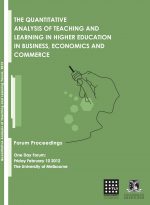 EDITED CONFERENCE PROCEEDINGS
EDITED CONFERENCE PROCEEDINGS
Davies, M. (Ed.). (2012). Quantitative Analysis of Teaching and Learning in Higher Education in Economics, Commerce and Business Disciplines. Southbank: On-Demand. ISBN: 9 78 07340 4208 8
Davies, M. (Ed.). (2011). Quantitative Analysis of Teaching and Learning in Higher Education in Economics, Commerce and Business Disciplines. Southbank: On-Demand. ISBN: 9 78 07340 4208 8
Davies, M., and Draper, S. (Ed.). (2010). Quantitative Analysis of Teaching and Learning in Higher Education in Economics, Commerce and Business Disciplines. Southbank: On-Demand. ISBN: 9 7807 340 4155 5
Davies, M., and Draper, S. (Ed.). (2009). Quantitative Analysis of Teaching and Learning in Higher Education in Economics, Commerce and Business Disciplines. Southbank: On-Demand. ISBN: 9 7807 340 3685 8
Davies, M. (Ed.). (2008). Quantitative Analysis of Teaching and Learning in Higher Education in Economics, Commerce and Business Disciplines. Southbank: On-Demand. ISBN: 9 78 07 340 3906 4
Davies, M. (Ed.). (2007). Quantitative Analysis of Teaching and Learning in Higher Education in Economics, Commerce and Business Disciplines. Southbank: On-Demand. ISBN: 978 0 7340 3690 2
Davies, M. (Ed.). (2006). Quantitative Analysis of Teaching and Learning in Higher Education in Economics, Commerce and Business Disciplines. Southbank: On-Demand. IBBN: 0 7340 3612 4
REFEREED CONFERENCE PROCEEDINGS
Davies, M., (2024, Invited keynote), ‘Critical thinking and computer-aided argument mapping’. Full-Day Interdisciplinary Symposium. Critical Thinking: Beyond Incantatory Rhetoric. University of Geneva, 6th June.
Davies, M., (2015), ‘Critical Thinking’ Workshop. Invited Session. The One Small Thing Conference: One Small Thing = A Big Difference. 17-19th September, Federation University Australia, Ballarat.
Carrington, M., Chen, R., Davies, M., Kaur, J., & Neville, B. (2011, 4th-6th July). Enhancing Critical Thinking: The Effectiveness of Computer-Aided Argument Mapping in a Marketing and a Financial Accounting Subject. Paper presented at the EDULEARN Conference, Barcelona, Spain.
Davies, M. (2011, 15th December). Computer-Aided Argument Mapping: An Educational Revolution? Paper presented at the New Media: New Literacies, and New Forms of Learning, Institute of Education, University of London.
Davies, M. (2011, 8th-10th January). The Effectiveness of Computer-Aided Argument Mapping as a Teaching and Learning Tool. Paper presented at the World Universities Forum, Rhodes, Greece.
Carrington, M., Chen, R., Davies, M., Kaur, J., & Neville, B. (2010, 6th-9th July). Enhancing Critical Thinking: The Effectiveness of Computer-Aided Argument Mapping in a Marketing and a Financial Accounting Subject. Paper presented at the Higher Education Research and Development (HERDSA) Conference: Reshaping Higher Education, Deakin University, Melbourne.
Davies, M. (2009, 26th March). Publishing from Everyday Life (Invited talk). Paper presented at the Higher Education Research Colloquia, Deakin University.
Davies, M. (2009, 6th-9th July). Computer-Aided Argument Mapping as a Teaching and Learning Tool. Paper presented at the Higher Education Research and Development (HERDSA) Conference Workshop, Darwin, NT.
Davies, M. (2008, 22nd July). Models of Practice in Integrating English Language Skills into the University Curriculum (Invited talk). Paper presented at the Provost’s Summit, Internationalisation: The Next Phase, University of Melbourne.
Davies, M. (2008, 4th-7th December). Concept Mapping, Mind Mapping, Argument Mapping: What are the Differences and Do they Matter? Paper presented at the Philosophy of Education Society of Australasia Annual Conference, Queensland University of Technology, Brisbane, Qld.
Davies, M. (2008, 5th November). Intensive Teaching Formats (Invited talk). Paper presented at the Arts Innovation Forum, University of Melbourne.
Davies, M., & Devlin, M. (2007, 5th-10th December). Interdisciplinary Higher Education and the Melbourne Model. Paper presented at the Philosophy of Education Society of Australasia Annual Conference, Creativity, Enterprise and Policy: New Directions in Education, Wellington, NZ.
Davies, M., & Devlin, M. (2007, 5-10th December). Interdisciplinary Higher Education and the Melbourne Model. Paper presented at the Philosophy of Education Society of Australasia (PESA), Wellington, NZ.
Davies, M., Hirschberg, J., Lye, J., & Johnston, C. (2007, 24th-26th June). Quality of Teaching Surveys and the Course Evaluation Questionnaire: How do Subject Surveys Relate to Course Results in Australian Universities. Paper presented at the Oxford Business and Economics Conference, St. Hugh’s College, University of Oxford.
Davies, M., Hirschberg, J., Lye, J., & Johnston, C. (2007, 24-26th June). Quality of Teaching Surveys and the Course Evaluation Questionnaire: How do Subject Surveys Relate to Course Results in Australian Universities. Paper presented at the Oxford Business and Economics Conference St Hugh’s College, University of Oxford.
Davies, M., Hirschberg, J., Lye, J., & Johnston, C. (2007, 9th February). An Exploration of the Relationship between the Quality of Teaching Survey and the Course Experience Questionnaire. Paper presented at the Quantitative Analysis of Teaching and Learning in Higher Education in Economics, Commerce and Business: Proceedings of the One-Day Forum, University of Melbourne.
Davies, M. (2006). Not Quite Right: On Writing and Inferencing, A Vector Analysis of Graduate Student Work. Paper presented at the Higher Education Research and Development (HERDSA) Conference: Higher Education in a Changing World, University of Sydney.
Davies, M., Hirschberg, J., Johnston, C., Lye, J., & McDonald, I. (2006, 10th February). Systemic Influences on Teaching Evaluations: The Case for Caution. Paper presented at the Quantitative Analysis of Teaching and Learning in Higher Education in Business, Economics and Commerce Forum, Faculty of Economics and Commerce, The University of Melbourne.
Davies, M., Hirschberg, J., Johnston, C., Lye, J., & McDonald, I. (2006, 10th February). Systemic Influences on Teaching Evaluations: The Case for Caution, Quantitative Analysis of Teaching and Learning in Higher Education in Business, Economics and Commerce Forum.
Davies, M., Hirschberg, J., Lye, J., & Johnston, C. (2006, 28-29th November). The TQI and the CEQ: Is There Method in this Madness? Paper presented at the Assessment and Evaluation Forum, Curtin University, Perth.
Davies, M., Hirschberg, J., Lye, J., & Johnston, C. (2006, 9th February). Systemic Influences on Student Evaluations of Teaching: The Case for Caution. Paper presented at the Quantitative Analysis of Teaching and Learning in Higher Education in Economics, Commerce and Business: Proceedings of the One-Day Forum, University of Melbourne.
Davies, M. (2005, 6-7th October). Not Quite Right: On Writing and Inferencing, A Vector Analysis of Graduate Student Work. Paper presented at the First International Conference on Intercultural Communication Competence: Implications for Business, Education and Politics, Singapore.
Davies, M. (2005, 22-24th June ). Implications of New Research in Cross-Cultural Psychology for Academic Writing and Argument Construction. Paper presented at the 3rd Biennial Conference of the European Association for the Teaching of Academic Writing (EATAW), Athens, Greece.
Davies, M., Hirschberg, J., Johnston, C., Lye, J., & McDonald, I. (2005, 26-28th September). Systemic Influences on Teaching Evaluations: The Case for Caution. Paper presented at the Proceedings of the Australian Society of Economists, University of Melbourne.
Davies, M., Hirschberg, J., Johnston, C., Lye, J., & McDonald, I. (2005, 13-15th June). Is it Your Fault? Systemic Influences on Student Evaluation of Teaching in Tertiary Institutions. Paper presented at the First International Conference on Enhancing Teaching and Learning through Assessment Hong Kong Polytechnic, Hong Kong.
Davies, M. (2004, 4-7th July). Ways of Knowing and Ways of Inferencing. Paper presented at the Higher Education Research and Development Society of Australia (HERDSA), Transforming Knowledge into Wisdom: Holistic Approaches to Teaching and Learning, Miri, Sarawak.
Davies, M. (2003, 2-9th July). A Cautionary Note about the Teaching of Critical Reasoning. Paper presented at the ‘Learning for an Unknown Future’ Conference, Higher Education Research and Development Society of Australasia (HERDSA), Christchurch, New Zealand.
Davies, M. (2003, 5-8th July). Deconstructing Literature: Using English to Teach Reasoning. Paper presented at the Transforming Literacies: Changing English Elsewheres of Potential. International Federation for the Teaching of English, University of Melbourne.
Davies, M. (2003, 2-9th July). A Cautionary Note about the Teaching of Critical Reasoning. Paper presented at the ‘Learning for an Unknown Future’ Conference, Higher Education Research and Development Society of Australasia (HERDSA), Christchurch, New Zealand.
Davies, M. (2001, 27-28th November). Where to Begin?: Problems in Teaching Critical Reasoning to NESB Students. Paper presented at the ‘Sources of Confusion’ Learning and Academic Skills (LAS) Conference, La Trobe University, Melbourne.
COMMISSIONED REPORTS/CHAPTERS
Davies, M., Barnett, A., van Gelder, T. (2019, invited paper), Using Computer-Assisted Argument Mapping to Teach Reasoning to Students, in Teaching Critical Thinking: A Resource for Instructors (A. Blair Ed) Windsor Studies in Argumentation (Vol. 7): Centre for Research in Reasoning, University of Windsor (L. A. Groarke and C. W. Tindale, Editors in Chief): Open Monograph Press.
Davies, M., & Helgeby, S. (2013, commissioned paper). Idealist Origins in Australasian Philosophy, 19th Century, Early 20th Century. In G. Oppy & N. Trakakis (Eds.), A History of Australasian Philosophy Berlin: Springer. Monash ARC Discovery project No. #0663930.
Davies, M., & Helgeby, S. (2010, commissioned article). Idealism. In G. Oppy & N. Trakakis (Eds.), A Companion to Philosophy in Australia and New Zealand (pp. 217-219). Clayton: Monash University Publishing. Monash ARC Discovery project No. #0663930.
Davies, M., & Devlin, M. (2007, commissioned article). Interdisciplinary Higher Education: Implications for Teaching and Learning. University of Melbourne: Centre for the Study of Higher Education.
EDITOR REVIEWED PAPERS
Davies, M. (2010). Thoughts of a Special Issue Editor. Higher Education Research and Development of Australasia (HERDSA) Newsletter, 32, 5-6
Davies, M. (2007). Making it Quantitative: Report on the 2007 Teaching and Learning Forum in Economics, Commerce and Business Disciplines. Higher Education Research and Development Society of Australasia (HERDSA) Newsletter, 29(3), 26-27
Davies, M. (2006). Making it Quantitative: Report on the 2006 Teaching and Learning Forum in Economics, Commerce and Business Disciplines. Higher Education Research and Development Society of Australasia (HERDSA) Newsletter, 28(1), 27-28
EDITOR REFEREED REPORTS
Holdsworth, A., Watty, K., & Davies, M. (2009). Developing Capstone Subjects. University of Melbourne: Centre for the Study of Higher Education.
PRINT MEDIA PUBLICATIONS
Calma, A and Davies, M. (2025). Maybe the problem isn’t critical thinking but how we assess it. Pursuit. University of Melbourne Multi Media Research Publication.
Davies, M. (2024, 28th August). Our kids are missing out on critical thinking. Pursuit. University of Melbourne Multi Media Research Publication.
Davies, M. and Calma, A., (2020, 9th July). COVID-19 didn’t start the FIRE but will it put it out? BlueNotes. Online journal of the ANZ Bank.
Davies, M. and Calma, A., (2020). Our business leaders must think critically. Pursuit. University of Melbourne Multi Media Research Publication.
Davies, M. (2019, 20th March). Mind the Gap. The Thesis Whisperer.
Davies, M., (2018). Cross-Examining Western Thinking. Pursuit. University of Melbourne Multi Media Research Publication. [A longer version of this article is in Australian Universities’ Review.]
Davies, M., and Calma, A., (2018). Feature. Who’s Citing Who, and Who’s Citing What? Pursuit. University of Melbourne Multi Media Research Publication.
Davies, M. (2018). Feature. Tech-Savvy Teaching of Critical Thinking. Pursuit. University of Melbourne Multi Media Research Publication.
Davies, M. (2016, 14th December) In Praise of Redundancy. The Thesis Whisperer.
Davies, M. (2016, 22 November) What is Critical Thinking and do Universities Really Teach It? The Conversation.
Davies, M. (2015, 10th June), A Deficiency in Critical Thinking. The Australian, HES, p. 32.
Davies, M. (2014), The Double Doctorate. The Thesis Whisperer, September.
Davies, M. (2013), A Farewell to Arts: On Philosophy, ARC Funding and Government
“Waste“. The Conversation.
Davies, M. (2012, 11th July). Lament of the Over-Qualified and Underemployed. The Australian, HES, p. 32.
Davies, M. (2012, 28th March). Ask the Right Questions to Get Real Answers on Performance. The Australian, HES, p. 28.
Davies, M., & King, M. (2012, 26th September). Net Gains of Digital Profile. The Australian, HES, p. 33.
Davies, M. (2010). Thoughts of a Special Issue Editor. Higher Education Research and Development Society of Australasia (HERDSA) Newsletter., 32, 5-6.
Davies, M. (2008, January). Interdisciplinarity is the “New Black”. Campus Review, p. 7.
Davies, M., & Devlin, M. (2008, 15th January). Interdisciplinarity is the “New Black”. Campus Review, p. 7.
Davies, M. & Devlin, M. (2007, 31st October). Understanding the Disciplinary Cycle. The Australian, HES, Supplement, p. 30.
Davies, M., Hirschberg, J., Lye, J., & Johnston, C. (2007, 12th September). Let’s Evaluate the Possibilities. The Australian, HES, p. 33.
Davies, M. (2006, September). Doctor in the House. Campus Review, pp. 26-27.
Davies, M. (2006). Doctor in the House. Campus Review, 26-27.
Davies, M. (1999). Unhappy Hour. SA Write: Newsletter of the South Australian Writers’ Centre, October.
Davies, M. (1998). Writing and Originality. SA Write: Newsletter of the South Australian Writers’ Centre, November.
Davies, M. (1998, 8th January). Bill’s Splendid Adventure (Obituary Notice). Herald-Sun, p. 65.
BOOK REVIEWS
Davies, M. (1999). Alexander Miller, The Philosophy of Language (review). Philosophy in Review, August
Davies, M. (1998). Georges Rey, Contemporary Philosophy of Mind: A Contentiously Classical Approach (review). Australasian Journal of Philosophy, September
EDUCATIONAL LITERATURE FOR STAFF USE
Davies, M. (2010). Teaching International Students. Retrieved from http://tlu.fbe.unimelb.edu.au/teaching_staff/pdfs/international_students.pdf
Davies, M. (2010). Interdisciplinary Higher Education. Retrieved from http://tlu.fbe.unimelb.edu.au/teaching_staff/resources/
Davies, M. (2010). How to Structure and Teach a Tutorial. Retrieved from http://tlu.fbe.unimelb.edu.au/teaching_staff/pdfs/structure_tutorial.pdf
Davies, M. (2010). Groupwork as a Form of Assessment. Retrieved from http://tlu.fbe.unimelb.edu.au/teaching_staff/pdfs/Groupwork_Assessment.pdf
Davies, M., & Calma, A. (2010). Teaching Strategies for New Environments. Retrieved from http://tlu.fbe.unimelb.edu.au/teaching_staff/pdfs/strategies_for_new_environments.pdf
Davies, M., & Calma, A. (2010). Teaching Strategies. Retrieved from http://tlu.fbe.unimelb.edu.au/teaching_staff/pdfs/Teaching_Strategies.p
EDUCATIONAL LITERATURE FOR STUDENT USE
Sole author unless otherwise indicated. Most of these are available at the website of the Giblin Eunson Library others are uploaded here. Tim Beaumont assisted with exercises and formatting for the GEL set, but the substantive content is my own. This material is under license with the Faculty of Business and Economics at the University of Sydney, and the Faculty of Business and Law at Edith Cowen University. Some of the material below formed the basis of Study Skills for International Postgraduate Students. NB: These materials are under Copyright. Please contact The Copyright Agency if you wish to use them.
Assignment Types
Davies, M. (2007). Abstracts
Davies, M. (2007). Annotated Bibliographies
Davies, M. (2007). Case Studies 1
Davies, M. (2007). Case Studies 2
Davies, M. (2007). Case Studies: Research Methods
Davies, M. (2007). Critical Reviews
Davies, M. (2004). Critical Review Language
Davies, M. (2007). Essay Checklist
Davies, M. (2007). Essay Writing Attitude
Davies, M. (2007). Essay Writing: The Basics
Davies, M. (2017). Generic Reports
Davies, M. (2019). Business Reports
Davies, M. (2018). Literature Review Planning
Davies, M. (2007). Literature Reviews
Davies, M. (2007). Research Reports
Davies, M. (2007). Report Checklist
Davies, M. (2007) Task Words
Davies, M. (2019). Responding to Short Answer Questions
Writing Skills
Davies, M. (2007). Apostrophes
Davies, M. (2007). Articles
Davies, M. (2017). Capitalisation
Davies, M. (2017). Using Connectives
Davies, M. (2017). Cutting Sentence Length
Davies, M. (2007). Editing and Proofreading Checklist
Davies, M. (2007). Editing and Proofreading
Davies, M. (2018). Using Figures and Tables
Davies, M. (2007). Paragraphs
Davies, M. (2018). Prepositions
Davies, M. (2007). Punctuation
Davies, M. (2018). Parallelism
Davies, M. (2017). Sentence Structure
Davies, M. (2017). Subject-Verb Agreement
Davies, M. (2017) Pronoun-Noun Agreement
[/ezcol_1half] Davies, M. (2017). Tenses
Davies, M. (2018). Tenses in Scientific Report Writing
Davies, M. (2007). Verb Tenses
Study Skills
Davies, M. (2017). Argument Maps
Davies, M. (2017). Concept Maps
Davies, M. (2017). Mind Maps
Davies, M. (2007). Planning and Organisation
Davies, M. (2018). Weekly Planner
Davies, M. (2007). Giving Presentations
Davies, M. (2017). Reading Journal Articles
Davies, M. (2017). Rhetorical Language and Debating Techniques
Davies, M. (2007). Reading Skills
Davies, M. (2007). Information Literacy (very dated)
Davies, M. (2007). Managing Information
Davies, M. (2007). Tutorials.
Citing and Referencing
Davies, M. (2004). Abbreviations Used in Referencing
Davies, M. (2007). Referencing: The Harvard System
Davies, M. (2018). Referencing: The Chicago/Turabian System
Davies, M. (2018). Endnote Desktop
Davies, M. (2007). Language for Citing
Davies, M. (2007). Paraphrasing
Davies, M. (2007). Plagiarism.
For Research Higher Degree Students
Davies, M. (2007). Completing a PhD
Davies, M. (2007). Conducting an Interview
Davies, M. (2007). Critical Thinking 1
Davies, M. (2007). Critical Thinking 2
Davies, M. (2007). Critical Thinking 3
Davies, M. (2007). Critical Thinking: Fallacies
Davies, M. (2007). Research Essentials
Davies, M. (2007). Research Proposals
Davies, M. (2007). The Research Process
Davies, M. (2007). What is Research?
ONLINE MEDIA ARTICLES
Davies, M. (2012). Business and Economics achieves Historic Teaching Result. Business and Economics News, 25th February, from http://benews.unimelb.edu.au/2011/business-and-economics-achieves-historic-teaching-result/
Davies, M. (2012). Evaluation of Tertiary Teaching Measures Different Factors. Business and Economics News, 8th March, from http://benews.unimelb.edu.au/2012/evaluation-of-tertiary-teaching-measures-different-factors/
Davies, M. (2011). Is Interdisciplinary Higher Education the Next Big Thing? Business and Economics News, 25th February, from http://benews.unimelb.edu.au/2011/is-interdisciplinary-higher-education-the-next-big-thing/
UNPUBLISHED WRITINGS
Davies, M. (2003). Regina Epipehnomena.Unpublished manuscript, Honorable Mention in Co-Op Bookshop Dialogica Prize for Excellence in Written Communication.

